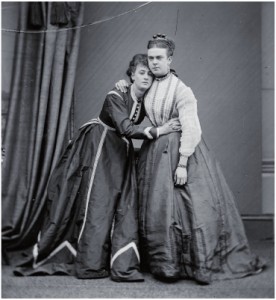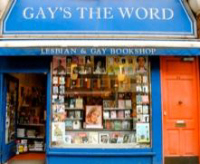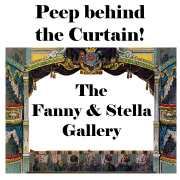 A Plaque commemorating the cross-dressers is to be put up on the wall of a United Reformed Church in King’s Cross, London soon. Tom Foot from the CamdenNewJournal has the story. I am looking forward to the unveiling.
A Plaque commemorating the cross-dressers is to be put up on the wall of a United Reformed Church in King’s Cross, London soon. Tom Foot from the CamdenNewJournal has the story. I am looking forward to the unveiling.
‘A PLAQUE commemorating a celebrated Victorian cross-dressing double act is to be bolted onto the national headquarters of a Christian church.
Ernest Boulton and Frederick Park – better known by their stage names Stella and Fanny – lived at 13 Wakefield Street, King’s Cross, from 1868 to 1870.
The plaque is promoted by the Gay’s the Word bookshop and organised by the Marchmont Association, which has recently arranged plaques to Soviet icon Vladimir Ilyich Lenin and Alexander Herzen.
The United Reformed Church, which now occupies the building, has given the plaque its blessing and its general secretary, the Rev Roberta Rominger, will be at the unveiling ceremony alongside actor, drag queen and activist, Bette Bourne.
Marchmont chairman Ricci de Freitas said: “When we saw they lived in what is now the United Reformed Church House we thought ‘Oh well, good try’. I was expecting resistance but they really embraced it immediately and they are hosting the event. Roberta is the top chief of the URC – like our archbishop.”
He said the group began organising its own memorial plaques in response to “snobbery” and delay from English Heritage, which runs the official Blue Plaque Scheme.
Stella and Fanny were best known for their outrageous impersonations of women at music halls and theatres across the capital.
According to the British historian Richard Davenport-Hines, writing in the Oxford Dictionary of National Biography, they kept an “extensive wardrobe of women’s clothes” at the Wakefield Street address where the plaque is being put up.
Mr Davenport-Hines added: “When dressed as women, they painted their faces, chirruped with their lips, and coquetted. Courageous and generous, they were not prostitutes but sometimes asked their admirers for money.”
In 1870, the pair were charged with committing felonious crimes and outraging decency but were later acquitted in an important test case exposing failings in the criminal justice system.
The United Reformed Church has its roots are in the Reformation of the 16th century and the English tradition of Dissent, which sought freedom to live and worship outside the bounds of the established English Church.
Its Wakefield Street Church House has 70 employees and supports the 13 synods in their work.
Neil McKenna, author of the book Fanny and Stella, is expected to be at the plaque unveiling, which has made possible by a single anonymous donation.’






